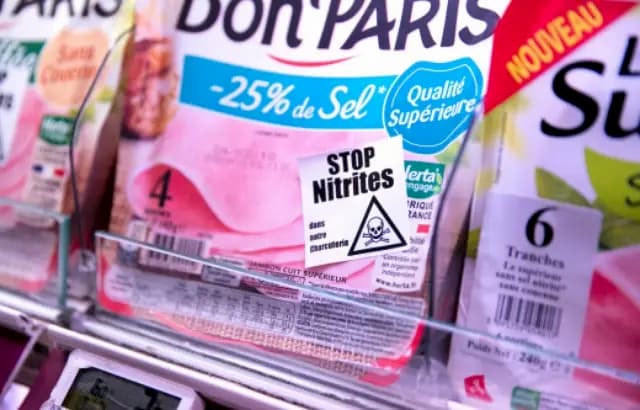Health: A Petition Launched Against Nitrite Salts in the Diet

CANCER: The League against Cancer and Yuka application are among the organizations behind the petition banning nitrite salts in food
The NGO Foodwatch, the application Yuka and the League against cancer announced Wednesday the launch of a petition, addressed to Agnès Buzyn , to request the ban of nitrite salts in the diet because of their role in the appearance of certain digestive cancers. “It is the responsibility of the public authorities to strengthen the rules, prohibiting all additives recognized as dangerous,” argues Camille Dorioz, of Foodwatch, in a statement.
In 2010, the World Health Organization’s (WHO) Cancer Research Center classified these substances as “probable carcinogens” in humans, “when ingested under conditions allowing endogenous nitrosation”, that is, their transformation into molecules such as nitrosamines within the body.
No unanimity in the scientific community
The presence of these additives in the industrial delicatessen (which gives them a pink color and facilitates their conservation) had also led the Circ to classify processed meat as a proven carcinogen in 2015, estimating that the consumption of 50 grams per day of this type of ‘food increased the risk of colorectal cancer by 18%, recall Foodwatch, Yuka and the League Against Cancer. This ranking is not unanimous in the scientific community.
While their use is more and more disputed in recent years, the manufacturers assure that it is very difficult to do without it. They also argue that nitrates prevent the formation of microbes responsible for serious intoxication, such as botulism. But for the three organizations behind the petition, the recent boom in the “nitrite-free” charcuterie market is “proof that manufacturers know how to do it when they want it”.
On October 24th, the National Assembly rejected an amendment tabled by MP MoDem Richard Ramos, who proposed to introduce a tax of 0.10 euro cents per kilogram on delicatessen products containing nitro additives. Health Minister Agnès Buzyn felt that the dangerousness of these substances was not yet scientifically substantiated.
Enjoyed this? Get the week’s top France stories
One email every Sunday. Unsubscribe anytime.


